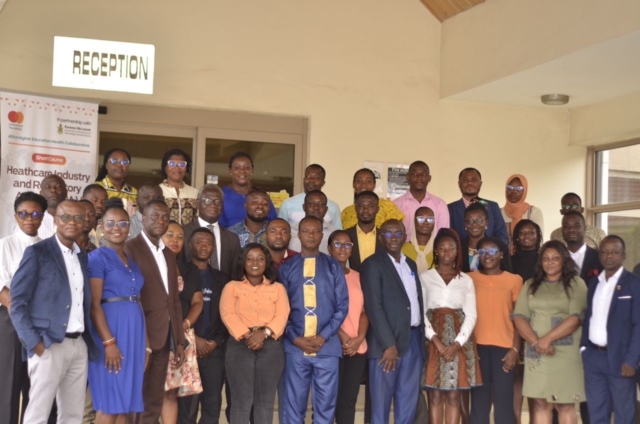Many health professionals in Ghana are failing to conduct regular recalibration of medical equipment for quality healthcare delivery.
Public health experts argue that non-compliance to the standard practice of fixing uncertainties in medical devices frequently could be contributing to false diagnoses of diseases.
The concern was expressed at a workshop on Health Industry and Regulatory Affairs by the Mastercard Foundation Africa Higher Education Health Collaborative in Kumasi.
Speaking at the event, a lecturer at the School of Public Health, KNUST and pillar lead of Health Employment under the Collaborative, Dr. Kofi Akohene Mensah, observed some challenges in the regulation of the pharmaceutical industry and the use of medical equipment.

Dr. Kofi Akohene Mensah - Pillar Lead, Health Employment under the Mastercard Foundation Africa Higher Education Health Collaborative.
He highlighted some practices by health professionals contributing to false diagnosis of disease.
“Most health care professionals are not aware of regular calibrations. When we buy thermometers, sphygmomanometers, we don’t calibrate them. Even when they conduct initial calibrations, they don’t do it regularly. So, only God knows the number of people who have been diagnosed falsely of hypertension,” he said.
The Mastercard Foundation Africa Higher Education Health Collaborative in partnership with the School of Public Health-KNUST is organising a weeklong event on Healthcare Industry and Regulatory Affairs.

The workshop targets researchers and practitioners from varied sectors of the health industry.
Participants will undertake courses in the regulatory framework of the pharmaceutical and medical equipment divisions of the health industry.
With the emergence of advanced technology, including artificial intelligence, Professor Anthony Kwaku Edusei, a facilitator for the coursework, believes the training would apprise participants of current digital health practices.
“The participants will be equipped with knowledge and skills in technologies that can help facilitate healthcare delivery,” he said.
The workshop brought together 30 participants from across the country who are positive about grasping concepts in the coursework for application.

“We will better understand how these medical devices work. We can also collaborate with others from the industry to conduct research in these fields,” Martha Naab said.
Latest Stories
-
Center for Learning and Childhood Development Director Dr Kwame Sakyi honoured at Ghana Philanthropy Awards
22 mins -
Asantehene receives 28 looted artefacts
1 hour -
CAF WCL 2024: Ghana’s Thelma Baffour wins title with TP Mazembe
2 hours -
Benjamin Boakye slams politicisation of energy sector issues and ECG’s inefficiencies
2 hours -
Erastus Asare Donkor and Dr Neta Parsram win big at 10th Mining Industry Awards
2 hours -
Government is “suppressing information” about power sector challenges – IES Director
3 hours -
Majority of our debts caused by forex shortfall – ECG Boss
3 hours -
Pan-African Savings and Loans supports Ghana Blind Union with boreholes
3 hours -
Bole-Bamboi MP Yussif Sulemana donates to artisans and Bole SHS
4 hours -
Top up your credit to avoid potential disruption – ECG to Nuri meter customers
4 hours -
Dutch & Co wins 2024 Entrepreneur of the Year Award
4 hours -
We’ll cut down imports and boost consumption of local rice and other products – Mahama
6 hours -
Prof Opoku-Agyemang donates to Tamale orphanage to mark her birthday
7 hours -
Don’t call re-painted old schools brand new infrastructure – Prof Opoku-Agyemang tells gov’t
8 hours -
Sunon Asogli plant will be back on stream in a few weeks – ECG
8 hours

